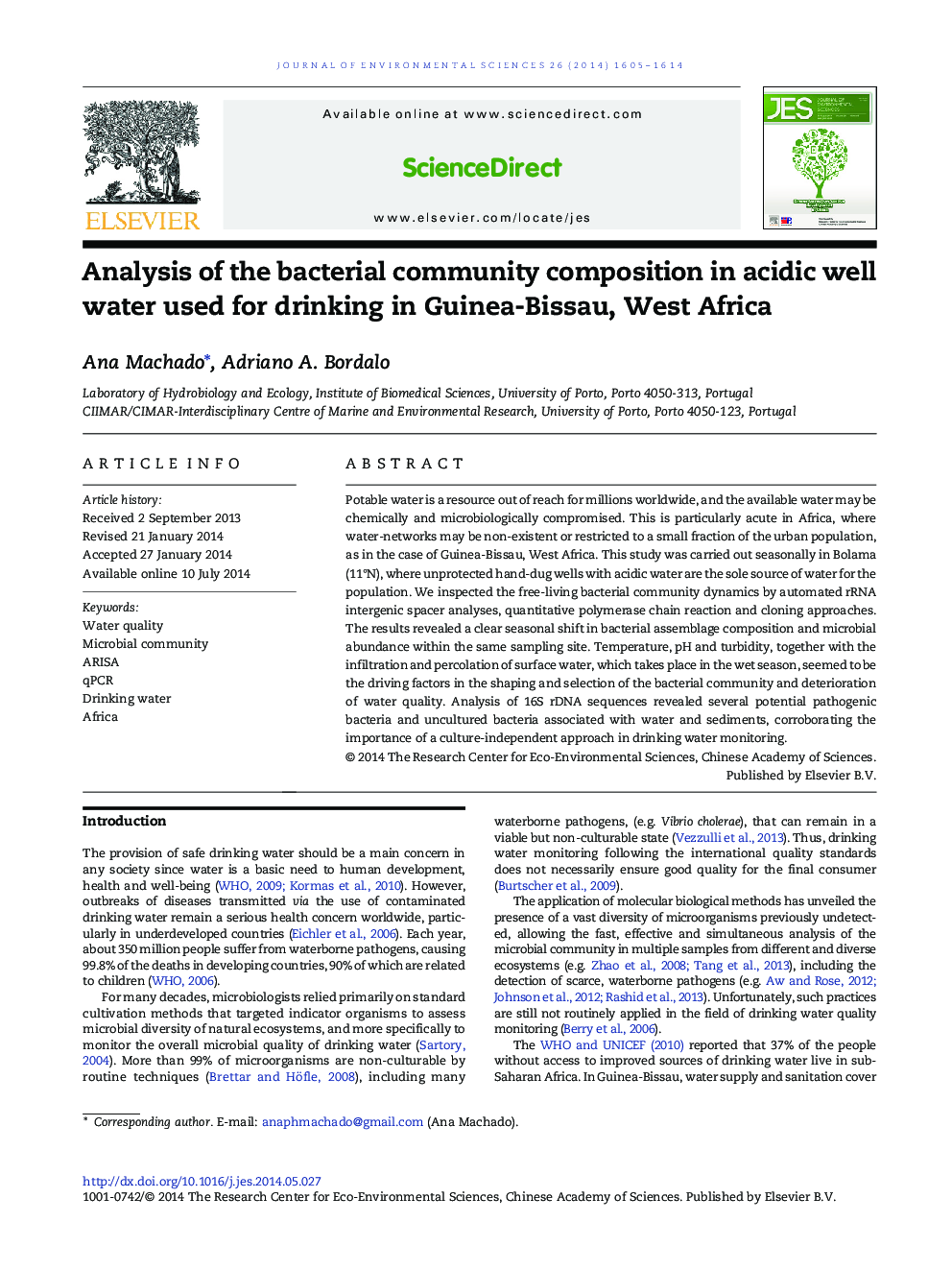| Article ID | Journal | Published Year | Pages | File Type |
|---|---|---|---|---|
| 4454263 | Journal of Environmental Sciences | 2014 | 10 Pages |
Potable water is a resource out of reach for millions worldwide, and the available water may be chemically and microbiologically compromised. This is particularly acute in Africa, where water-networks may be non-existent or restricted to a small fraction of the urban population, as in the case of Guinea-Bissau, West Africa. This study was carried out seasonally in Bolama (11°N), where unprotected hand-dug wells with acidic water are the sole source of water for the population. We inspected the free-living bacterial community dynamics by automated rRNA intergenic spacer analyses, quantitative polymerase chain reaction and cloning approaches. The results revealed a clear seasonal shift in bacterial assemblage composition and microbial abundance within the same sampling site. Temperature, pH and turbidity, together with the infiltration and percolation of surface water, which takes place in the wet season, seemed to be the driving factors in the shaping and selection of the bacterial community and deterioration of water quality. Analysis of 16S rDNA sequences revealed several potential pathogenic bacteria and uncultured bacteria associated with water and sediments, corroborating the importance of a culture-independent approach in drinking water monitoring.
